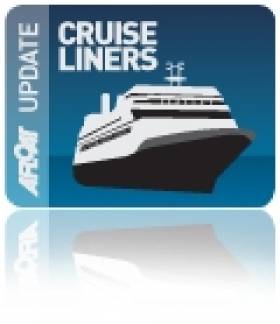Displaying items by tag: Rugby World Cup
Rugby World Cup Coverage for Fans on Cruise-Ships
A total of 24 matches are being shown, starting from the opening game and will include all four Home Nations' matches, quarter-finals, semi -finals, bronze final and then the final on 23rd October. Of course there will be other fans on board from Wales, Scotland, England and elsewhere watching the fixtures throughout the cruise-ships various sporting bars, pubs and other venues.
Carnival Corporation's UK entertainment services general manager, Paul Wright, said: "The Rugby World Cup is of great interest to many of our passengers and we're pleased that nobody will miss out by being on holiday with us throughout this time. At any one time we could have more than 19,000 passengers collectively on board and rooting for one of the Four Nations to bring home the trophy".
He added: "Most people have a sport that they follow and some times, like on a cruise ship, you won't have access to your favourite sport, which means a lot to fans. On our last cruise on Independence of the Seas, we had popular sports shown in state rooms and certain bars around the ship, of course football was the most common sport shown".
Incidentally Independence of the Seas has also called to Cobh since her Irish debut in 2007 and at 154,407 tonnes is the largest ever cruise-caller to Cork Harbour. She surpasses Cunard Line's flagship Queen Mary 2 of 148,528 tonnes which too berthed at Cobh last Wednesday, four days after Queen Elizabeth's inaugural visit.
























































